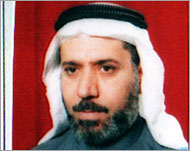Sunnis decline in Basra, official says
The proportion of Sunni Muslims in Basra has declined from 40% to 15%, after three years of forced immigration, said the chairman of a religious authority in Iraq.

The chairman of the official Sunni Endowment in Southern Iraq said militias had targeted Sunnis in the country’s second-largest city.
Although the southern mainly Shia region, where British forces are based, has been quieter than the Sunni Arab areas patrolled by Americans farther north, Basra has become more dangerous in recent months.
Security in Basra has deteriorated as Shia groups compete for further power in the newly formed government of prime minister Nuri al-Maliki.
Basra, whose oil accounts for virtually all of Iraq‘s state revenues with northern export pipelines crippled by rebel bombings, is a major prize for all parties.
The ministry of immigration and deportees on Wednesday said 700 families were forced to leave Basra.
Militias
Amid the chaos, some Shia militias stepped up their activities in attacking groups that do not share their beliefs.
On Wednesday, Abd al-Karim al-Khazraji, the chairman of the Sunni endowment, said: “Militias like Saraia al-Mukhtar and Saraiya al-Thaar have been targeting Sunni Muslims. They have outrageous tactics like preventing the wounded from reaching hospitals and killing those who make their way to hospitals.
 |
|
Al-Khazraji said Shia tribes were |
“Forced immigration tactics involve warning letters containing orders to leave Basra, and marking the houses of Sunnis with red paint,” he
said.
He said the situation has prevented many Basran Sunnis from working, worsening the already strained economic situation of the city.
Ambiguous
Al-Khazraji said that no one knew who backed those militias but that the government could find out.
“Naming who is behind those death squads is a very sensitive issue; however, we can confidently say that one of Iraq‘s neighbours has been playing key role in Basra‘s issues,” he said, without naming the country.
Shia tribal leaders and Shia tribesmen in southern Iraq had been helping Sunnis combat the campaign against them, he said.
The governor of Basra, Muhammad al-Waeli, told Aljazeera on Wednesday that the situation in Basra had been exaggerated.
“Media reports have exaggerated the situation in Basra, the situation is not as bad as it appears in media,” he said.
State of emergency
Liqa Makki, an Iraqi political analyst and former professor of journalism in Baghdad University, said: “Maybe al-Waeli is the only person on Earth that says Basra‘s situation is not on the verge of explosion. If that is the case, why was the state of emergency imposed?”
The new prime minister declared a one-month state of emergency in Basra on Wednesday, pledging to hit with an “iron fist” against gangs and feuding Shia factions threatening oil exports.
“We hope after this month that we will come back to Basra and see that the situation has improved a lot,” he told reporters after his announcement in the southern city.